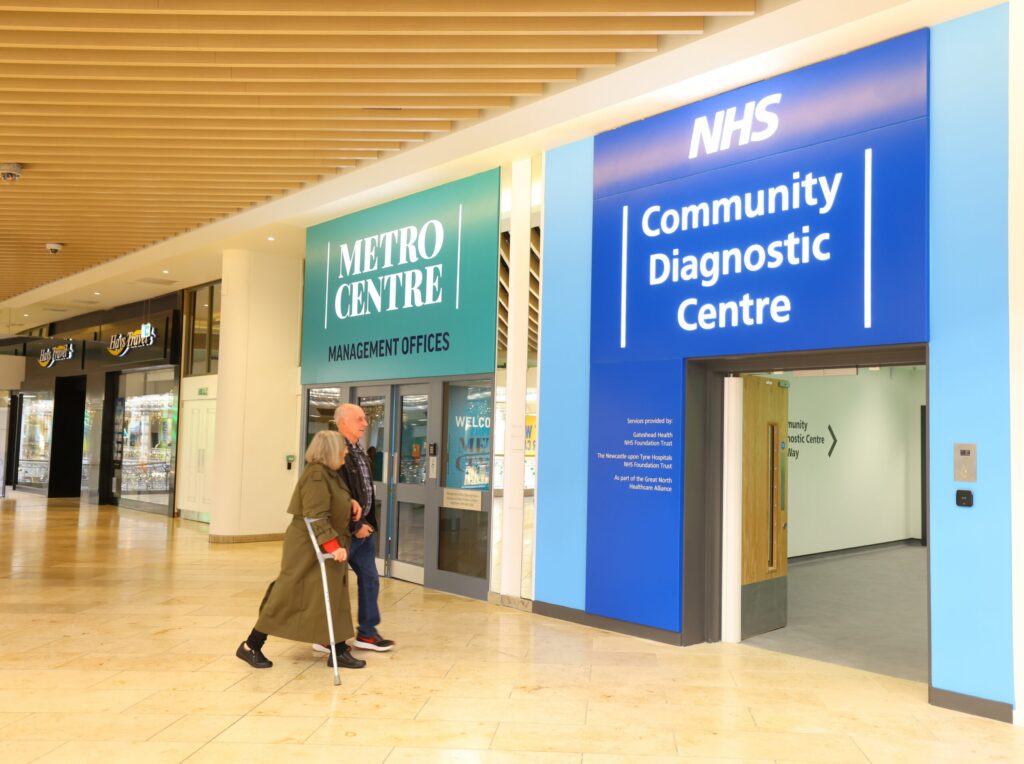Digital Transformation NHS:Healthcare the Future
Introduction
The National Health Service (NHS) in England is undergoing its most significant transformation in decades, driven by an ambitious digital revolution that promises to reshape how healthcare is delivered, accessed, and experienced. With the launch of the 10-Year Health Plan, the NHS is embracing technology to address longstanding challenges including growing demand, operational inefficiencies, and persistent health inequalities. This comprehensive shift from analogue to digital isn’t merely about adopting new technologies—it’s about fundamentally reimagining healthcare delivery for the 21st century. As NHS Chief Executive Amanda Pritchard acknowledges, this transformation builds on the extraordinary efforts of staff who have delivered improvements despite “rising costs and demand, unprecedented industrial action, and long-term underinvestment in capacity and productivity-improving technology” This article explores the digital revolution underway in the NHS, its implications for patients and staff, and the challenges that remain in creating a truly modern, efficient, and equitable healthcare system.

The Foundation: The 10-Year Health Plan
The government’s 10-Year Health Plan, published in July 2025, represents the cornerstone of the NHS’s transformation strategy. Built around three radical shifts from hospital to community, analogue to digital,and sickness to prevention the plan aims to reinvent healthcare delivery across England This comprehensive approach recognizes that technology alone cannot solve the NHS’s challenges; instead, it requires fundamental changes to operating models, workforce structures, and financial incentives. The plan was developed through an unprecedented engagement process called “Change NHS,” which received over a quarter of a million contributions from the public, healthcare staff, and organizations This collaborative approach reflects the recognition that successful transformation requires buy-in from both healthcare professionals and the communities they serve. The digital components of the plan are not ends in themselves but enablers of broader improvements in care quality, access, and efficiency
Progress to Date: Building on Digital Foundations
The NHS’s digital transformation builds upon significant progress made over the past decade. Electronic prescribing has become the norm, with nearly 90% of prescriptions now processed digitally The NHS App has empowered over 34 million people to access health information, book appointments, and order repeat prescriptions with ease. Virtual wards, once considered experimental, now support patients across England with over 10,000 virtual beds in place as of early 2024 These developments reflect a broader cultural and operational shift across health and social care, with one in five NHS organizations now considered digitally mature. This foundation provides a platform for more ambitious innovations, including the introduction of standardized “patient passports” that give professionals secure, instant access to a patient’s complete medical history wherever they receive care These advances are not merely technical achievements but represent meaningful improvements in how patients experience care.
Key Digital Initiatives Transforming Care
1. Artificial Intelligence and Diagnostics
AI is rapidly becoming integral to NHS care delivery, particularly in diagnostics and treatment planning. In February 2025, the UK government announced £82.6 million in research funding for projects harnessing AI to diagnose and treat cancer This includes £18.9 million for PharosAI, a collaboration between King’s College London, Queen Mary University of London, Guy’s and St Thomas’ NHS Foundation Trust, and Barts Health NHS Trust, aiming to develop AI models for cancer diagnosis and treatment. Additionally, £12.9 million was allocated to Bind Research to use AI in targeting previously undruggable proteins, potentially leading to new treatments for diseases once considered untreatable Beyond these research initiatives, AI is already being deployed in clinical settings, such as AI-enhanced stethoscopes that can detect cardiac failure risk “in a heartbeat” These technologies promise not only to improve diagnostic accuracy but also to free up clinical time for direct patient care.
2. Connected Care and Interoperability
A crucial aspect of the digital transformation is creating connected systems that allow seamless information sharing across care settings. The NHS’s “Digitise, Connect, Transform” roadmap sets a goal for all NHS trusts to have core electronic patient records in place by March 2025 Plans to expand the Shared Care Records programme and develop federated data platforms are designed to ensure professionals have access to the right information at the right time whether in hospital, in the community, or at home. As Ming Tang, Chief Data and Analytics Officer at NHS England, emphasizes: “There is no future for a fragmented data ecosystem. National must enable local, not control it” This interoperability is essential for supporting the shift toward integrated care, where patients experience coordinated services rather than navigating disconnected silos
3. Virtual Wards and Remote Monitoring
Virtual wards represent one of the most significant innovations in healthcare delivery, allowing patients to receive hospital-level care at home. These wards use technology to remotely monitor patients with various conditions, from respiratory diseases to complex chronic conditions. The urgent and emergency care plan for 2025/26 emphasizes expanding these services, with goals to “increase the number of patients receiving urgent care in primary, community and mental health settings, including the number of people seen by Urgent Community Response teams and cared for in virtual wards” This approach not improves patient experience by allowing them to recover in familiar surroundings but also increases bed capacity within hospitals, helping to address congestion and waiting times
4. NHS App and Digital Access
The NHS App has become a central component of the digital strategy, with over 34 million people now using it to access services The app provides a single point of entry for various healthcare needs, including appointment booking, prescription requests, and access to health records. The 10-Year Health Plan envisions expanding functionality further, making the app a comprehensive health management tool. As Prime Minister Keir Starmer noted, “We need an NHS hungry for innovation That is the only way to face up to the challenges of the future”The convenience offered by digital access aligns with public expectations developed through other service sectors, while potentially reducing administrative burdens on frontline staff
Addressing Operational Challenges Through Technology
Beyond direct patient care, digital transformation is critical to addressing the NHS’s operational challenges. The 2025/26 priorities and operational planning guidance emphasize that “NHS organisations will need to reduce their cost base by at least 1% and achieve 4% improvement in productivity” to deal with demand growth within constrained budgets Technology is essential to achieving these efficiency gains. For example, the implementation of digital HR systems, including virtual HR “assistants” and a new “state-of-the-art” NHS payroll system, aims to free up resources for clinical services Similarly, the use of AI for operational planning can optimize resource allocation, bed management, and theatre scheduling. These behind-the-scenes improvements are less visible to patients but essential to the sustainability of services.
Workforce Transformation and Digital Literacy
The success of digital transformation depends fundamentally on the workforce. The NHS employs approximately 1.4 million people, ensuring they have the skills and confidence to use new technologies is essential The 10-Year Health Plan includes commitments to develop “personalised development plans and career coaching by 2035” for all staff Pending agreement with trade unions, the plan proposes transitioning from traditional appraisal systems to models based on “continuous skill development and real-time feedback” These changes recognize that technology should support rather than replace clinical expertise. As Sonia Patel, Director of Levelling Up Digital at NHS England, notes: “We’ve got to stop doing digital to people. It’s about being digital embedding it in the way we think, plan, and act” This cultural shift requires investment in training and development, change management, and leadership that models digital engagement

Ensuring Equity and Inclusion in Digital Access
As digital channels become increasingly central to healthcare access, ensuring equity is paramount. An estimated 10 million adults in the UK still lack basic digital skills, and around 7% of households remain offline Without intentional effort, digital transformation could exacerbate existing health inequalities. The NHS has acknowledged this challenge through frameworks focused on digital inclusion, and partnerships with libraries and local organizations are helping to improve access, skills, and confidence The 10-Year Plan emphasizes embedding inclusion into service design, supporting tailored access, and offering offline alternatives where needed. Importantly, digital options can sometimes increase access for groups who find traditional services daunting, such as those with mental health challenges A balanced approach recognizes that digital is one channel among others, and choice is essential to equitable access.
Financial Implications and Efficiency Gains
Digital transformation requires significant investment but promises substantial returns in efficiency and effectiveness. The government has committed to supporting this transition, with Chancellor Rachel Reeves announcing over £25 billion in additional NHS funding at the Budget This includes “over £1.8 billion since July on cutting waiting times alone”Specific digital initiatives have also received targeted funding, such as the £370 million of capital investment allocated to support various urgent and emergency care improvements, including “expansion of the Connected Care Records for ambulance services”These investments are framed not as costs but as enabling efficiencies that will make the NHS sustainable in the long term. For example, remote monitoring for long-term conditions could “cut another half a million unnecessary appointments” annually Similarly, enabling GPs to consult immediately with specialists could “avoid an extra 800,000 unnecessary referrals and appointments every single year” These efficiency gains are essential to achieving the productivity improvements required within constrained budgets
Challenges and Criticisms
Despite the ambitious vision, the digital transformation faces significant challenges. The British Medical Association (BMA) has raised concerns about several aspects of the 10-Year Plan, including workforce implications and the pace of change The plan explicitly rejects the 2023 Long Term Workforce Plan projections and states that “staff numbers in 2035 will be lower than previously planned”raising questions about whether the efficiency gains from technology will compensate for reduced staffing levels. There are also concerns about the implementation timeline, with the BMA noting “outstanding questions regarding many of its proposals”Additionally, the focus on productivity improvements—requiring a 4% increase in 2025/26 alone 1creates pressure to demonstrate quick returns on technology investments. Balancing this short-term pressure with the long-term nature of digital transformation represents a significant leadership challenge
The Path Forward: Integration and Continuous Improvement
The digital transformation of the NHS is not a one-time project but a continuous process of improvement and adaptation. The 2025/26 operational planning guidance emphasizes “recovering productivity, tackling unwarranted variation, and reducing delays and waste”This requires not only implementing new technologies but also optimizing their use and integrating them into workflows. The establishment of a new NHS Improvement and Assessment Framework will help track progress and identify areas needing support Similarly, the move toward “earned autonomy” for high-performing systems creates incentives for improvement while allowing flexibility in how goals are achieved This balanced approach—combining national direction with local innovation—will be essential to realizing the full potential of digital technologies
Conclusion: Toward a Sustainable, Digital-First NHS
The digital transformation of the NHS represents nothing less than a revolution in how healthcare is conceived, delivered, and experienced. By embracing technology while staying true to its core principles of being free at the point of use and based on clinical need rather than ability to pay, the NHS can potentially overcome the challenges that have threatened its sustainability. The journey is complex and requires careful attention to workforce development, ethical considerations, and equity issues. However, the potential benefits improved access, more convenient care, better outcomes, and a sustainable financial model make this transformation essential. As Helen Thomas, CEO of Digital Health and Care Wales, reminds us “We’ve had the shiny tools we need solid foundations” With the right foundations in place, the NHS can harness technology to secure its future as a world-class healthcare system fit for the 21st century.

External Links for Further Reading:
- NHS England: Digital Transformation
- https://sjxsm.shop/the-royal-marsdeneuropes-premier-cancer-centre/
- 10 Year Health Plan for England: Fit for the Future
- NHS England: 2025/26 Priorities and Operational Planning Guidance
- Digital Health Rewired: Conference Insights
- The King’s Fund: Technology in the NHS

